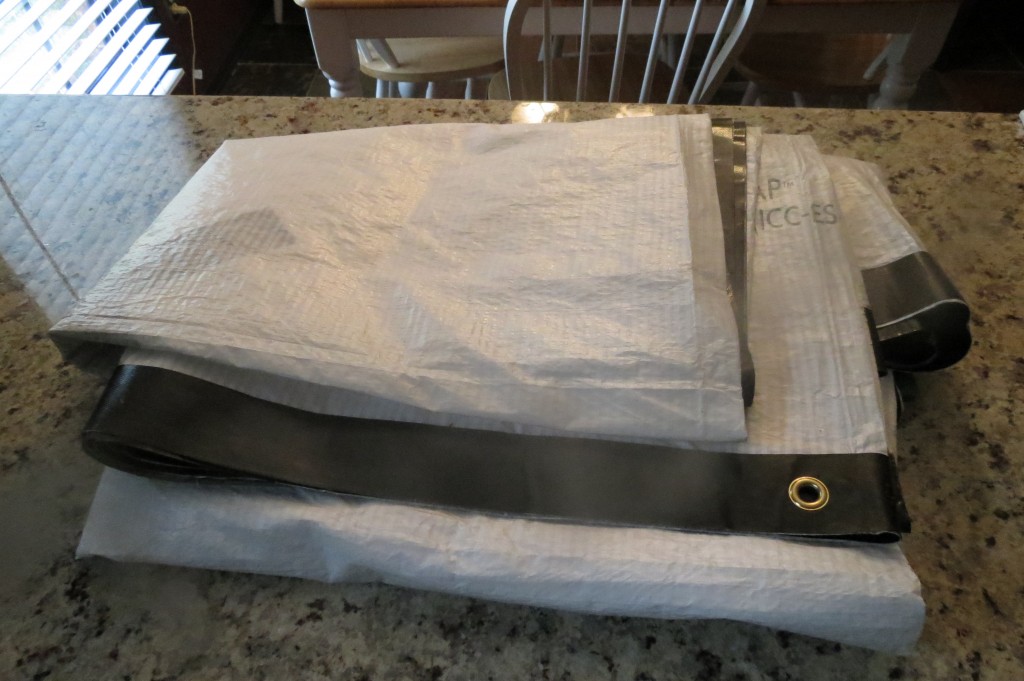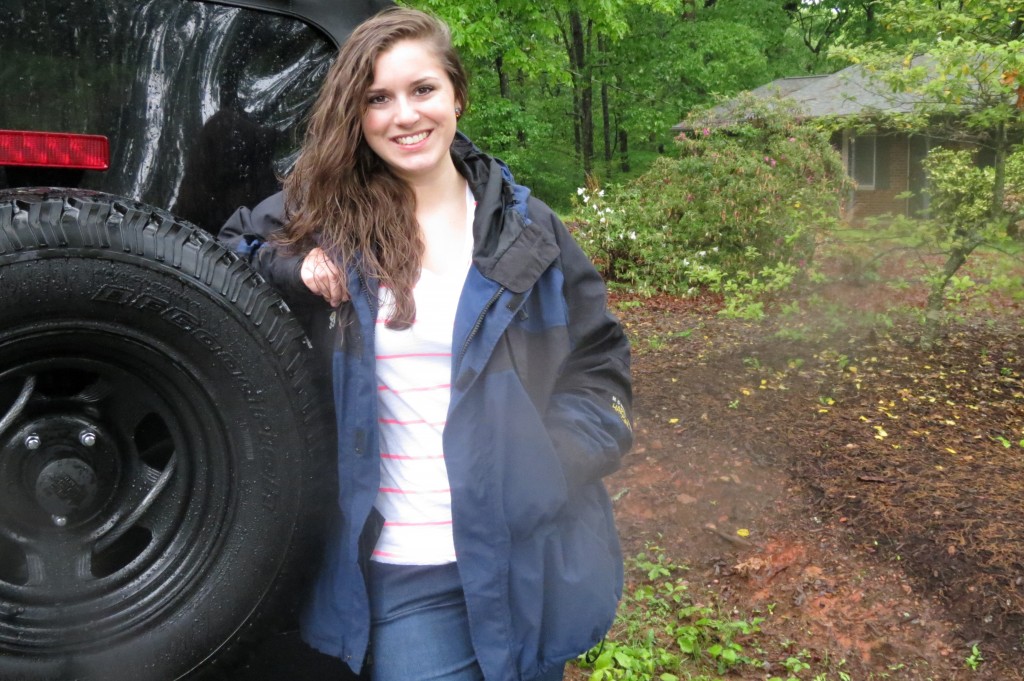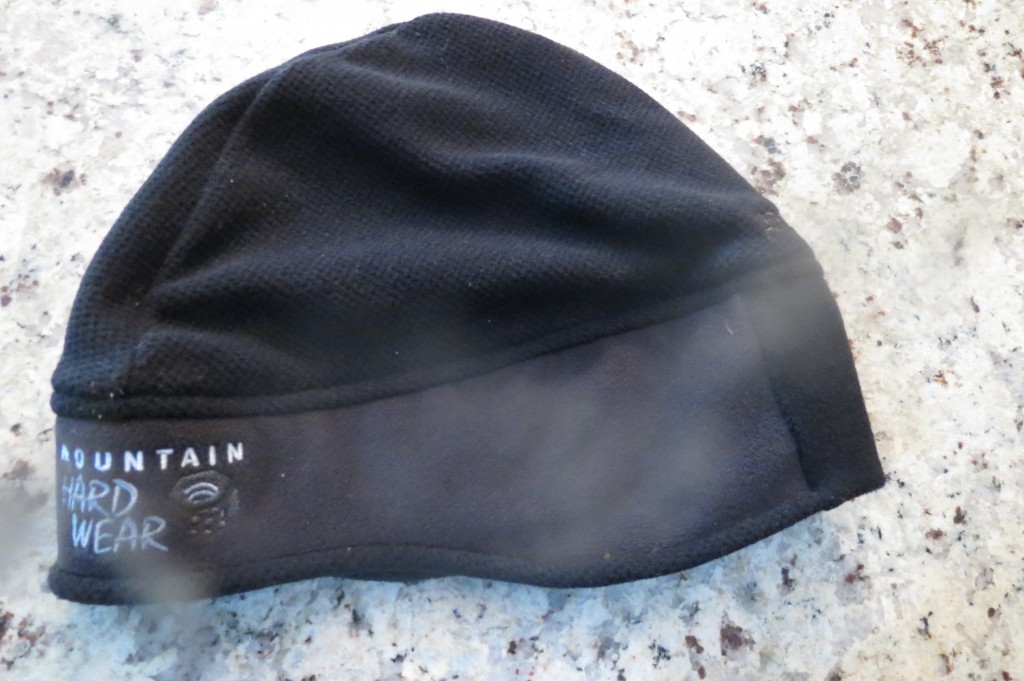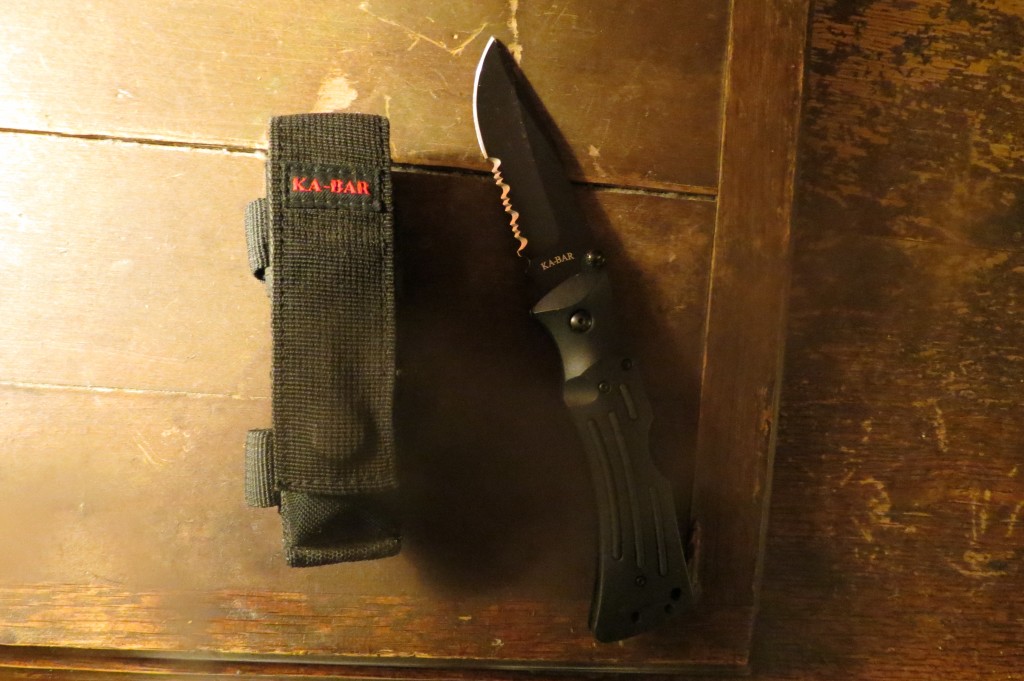I had promised to follow up my Living In The Field with Part 2. Beginning with tents and tarps, weight mitigation gets very expensive, and then even with big money there are detriments to living in a tent. When I wake in the morning regardless of the outside temperature (although it’s worse in the cold), the inside of the tent is soaked with condensation. This cannot be avoided, even with the mesh at the top of the tent that allows it to “breath.”
This is a feature of every tent I have ever owned. Furthermore, in the rain the entire system gets soaked, including the floor, and it’s a mess to put inside a backpack, potentially developing mildew and adding to the weight of your backpack until it’s dry. As I explained in What Happens If Your Bugout Gun Breaks, there is another option.
The most useful form of covering for me has been a 12′ X 12′ piece of vapor barrier I obtained from a housing contractor. I used Gorilla tape and grommets from Lowe’s to toughen up the edges and make it amenable to use with trekking poles. In order to assist with runoff of rain, I made sure to put a grommet in the very middle of the tarp. I simply find a tree and make use of 550 cord to lift the middle of the tarp above the sides. It folds up tight and very quickly, and you’re back on the trail without much fuss.

Find a friend who is a housing contractor, get some vapor barrier, and purchase $15 worth of parts from Lowe’s to make this tarp. It’s the best one I have ever had, and it just takes some time to prepare it.
Speaking of trekking wet, I have done this so many times I wouldn’t be able to count them. I spoke to this in the first article. I made clear that it you’re out in the woods in a driving rain, you’re going to get wet. Period. There is no way to avoid it. But in order to set the framework for this point I’ll let someone with more authority than I have make the point for me.
From David Miller on Awol on the Appalachian Trail:
I’ve been playing a game with my rain jacket. The cold rain is no match for the heat that I am generating, so I get completely wet from sweat anyway. I loosen my shoulder straps so I can worm out of the sleevesof the sauna suit one arm at a time while walking and without taking my pack off. It takes a few minutes, but I’m covering ground. About the time I finish, the rain picks up again, and I have to wiggle back in, still walking. I must’ve done this eight times … I wake to the sound of thunder and rain on the tin roof of the NOC bunkhouse. I hit the train about 10:30 after abandoning the fantasy that the rain would go away. The walk from NOC is the longest continuous uphill so far, going from 1723 feet to 4750 feet in six miles. The downside of dropping into towns is the climb out. The trail is a stream. Rain comes down in a heavy, continuous barrage. My defenses – a hooded rain jacket, gaiters, and Gore-Tex pants and shoes – only hold for about two hours. My shirt, pants and socks are all wet … The rain continues, and shows no signs of letting up. I get chills once I stop walking, so I have some hot food and jump into my sleeping bag with wet clothes, testing the theory that body heat dries them out. 8 am: It’s been raining for more than 24 hours. Sleeping in wet clothes is good for the clothes but bad for the sleeping bag … and even with a rain cover my pack slowly absorbs water from the space between me and the pack.
Those of us who live in the East don’t need to be told what NOC stands for. I’ve been there many times. My experiences have been much the same. The coldest, most driving rain I ever experienced was at Jones Gap in the mountains of S.C. in December of 2012 (this competes with one experience at Cold Mountain in much the same conditions). My poncho was absolutely waterproof, and yet at the end of my trek into the gap I was soaked to the bone from my own sweat. That was the only time I have ever been in the wilderness and unable to get a fire going (partly because of poor planning). Fortunately I had dry clothing and an Isobutane stove – and the tarp described above to keep me dry.
I hate to get all engineer on you, but in terms of mass transfer, unless there is a driving force or a differential in conditions, there won’t be any evaporation of your sweat. The notion of “breathable” rain gear is ridiculous. Regardless of whether the weave of the fabric can allow the water droplets from sweat to pass through, if the air on the other side is saturated (and when it’s raining it’s 100% relative humidity), there is no physical force to move the droplets through the fabric. Breath-ability is nice for other kinds of parkas (when it’s not raining), but the holy grail of hiking dry in the rain is fantasy to experienced backpackers. It just doesn’t happen that way.
Regarding coats and jackets, my favorite one has been the Mountain Hardwear Exposure II Parka. I like it for the heavier fabric and especially for the hip length design with a drawstring around the midriff. It has a snow skirt that zips to keep snow out (and for that reason it has been a favorite of ski patrol in the Western states), and the skirt helps to keep wind out where waist length parkas tend to suck in wind at the bottom.
The parka is good for rain for about two hours, and wind forever. Of course, as with all functional and well designed products, this parka has been discontinued. Mountain Hardwear has opted to focus on the city crowd who wants sleek, light parkas for walking back and forth from the parking deck to the office. Years ago there was the 60/40 parka that had a cult following. I was part of that cult. Sierra Designs discontinued it (what did I tell you above about functional gear being discontinued?), but it’s available today, just for a very elevated price.

My daughter models my Mountain Hardwear Exposure II Parka. It’s a bit big for her. That’s her jeep. I have a truck.
I think I spoke to head cover in the previous article, but I’ll mention it again. Ball cap style cover is fine for most conditions, but always needed whether from protection from the sun or warmth. In winter I like my soft hat. The one below drops in the back and provides warmth for my neck. This has served me fine down to temperatures in the single digits and heavy wind.

Mountain Hardwear hat, warmth in low temperatures and heavy winds. I am generally a proponent of good gear, and Mountain Hardwear makes most of it very well.
I don’t think I said enough about weight in the previous article, and I said nothing about backpacks. I have seen a number of so-called 3-day rucks, and frankly I’m unimpressed with all of them. They are not tall enough to put the weight up high and provide meaning to having hip straps.
For a backpack to be any good it needs to be designed to couple with your body as a system, placing the weight on the hips (with the hip straps) rather than the shoulders, thus setting the center of gravity for the weight you’re carrying on your back over the legs rather than throwing your upper torso off balance.
Most 3-day rucks have hips straps, but are short enough that the hip straps wrap around the belly, providing no support at all for the weight. It looks ridiculous and doesn’t supply any benefit. If the backpack doesn’t place the weight on your hips, it’s worthless and will eventually hurt you. Your spine isn’t designed for the compressive forces of humping a ruck around in the field with heavy weight being borne on your shoulders.
Folks who thru-hike the AT learn to shave micro-ounces off of their load. They will carry a children’s toothbrush because it weighs less than an adult toothbrush. With enough days in the field anyone begins to think the same way. I like fixed blade knives, but they weigh too much for me to believe that they are the only option. I use a tactical / utility folder with a serrated edge. This tool can cut, chop, or stab. Also, large fixed blade knives get in the way of my body movements, especially if I’m traversing steep terrain (which I usually am).

My Ka-Bar Tactical Folder. The soft sheath is suitable for attachment to molle straps.
A word about water purification. Other than removal of turbidity and use of a ceramic filter I am not a fan of other means of purification such as tablets (although I know that some people use them regularly in the field), as there is a health effect on the thyroid of overdose of iodine. Filtering removes protozoa (Giardia and Cryptosporidium) and Bacteria (e.g., E. Coli), but not viruses. Boiling removes all problems. So does bleach.
Treating Water with a 5-6 Percent Liquid Chlorine Bleach Solution
| Volume of Water to be Treated |
Treating Clear/Cloudy Water:
Bleach Solution to Add |
Treating Cloudy, Very Cold, or Surface Water: Bleach Solution to Add |
| 1 quart/1 liter |
3 drops |
5 drops |
| 1/2 gallon/2 quarts/2 liters |
5 drops |
10 drops |
| 1 gallon |
1/8 teaspoon |
1/4 teaspoon |
| 5 gallons |
1/2 teaspoon |
1 teaspoon |
| 10 gallons |
1 teaspoon |
2 teaspoons |
There are good reviews of water filtration equipment, and I recommend that you study the literature and see what you would like to try.
Water is very heavy (1 g/cc), and carrying it exhausting, so backpackers and hikers look for ways not to carry it on their backs. Speaking of weight, the heaviest component of any kit in a tactical situation will be a weapon and ammunition (stainless steel has a density of 7.94 g/cc, brass has a density of 8.7 g/cc, and lead has a density of 11.34 g/cc).
I have a bag of 1600 rounds sitting near me at the moment, and for those of us who are weightlifters, it’s way heavier than a 45 pound York plate. You’re not going to hoist that bag of ammunition on your back and traipse around the field with it very far. Multiple guns and excessive ammunition aren’t going to be a feature of long term operation in the field.
And back to water, I passed an AT thru-hiker in Damascus, Virginia, last summer, and asked him what he was doing for water. He had tried filtration for several weeks, but now he said when he sees water he “face-plants” in the water. No filtration, no tablets. Thus far, no problems.
I think he is risking extreme sickness, but I do understand adjustment to the various things in the local water. From the age of 14 – 21 I worked at a Christian camp in the mountains of S.C. (summers and weekends) shoveling gravel, digging ditches, driving tractors and trucks, baling hay, driving jeeps, training and doctoring quarter horses, and doing maintenance. We drank untreated local reservoir water, and when anyone new came to work with us they were usually sick for about two weeks. We all got accustomed to it, adjusting our bodies to the source of water.
Speaking of this camp, there is one more thing I wanted to mention. We hunted rattlesnakes and copperheads because otherwise we would lose horses to snake bites (they would be out of commission for a while if they lived). I have been bitten by a Copperhead before. In the hospital they used a syringe the likes of which I have never seen before, and the shot in my hip took about a minute to get all of the antivenin into my system.
My dog has also been bitten by a Copperhead, and her paw swelled up the size of a softball. There was no treatment given to her except antibiotics. Animals tend to do better than humans with snake bites, but if she hadn’t been 82 pounds she probably would have died.
At the time of my dog being bitten I did some research into antivenin and its cost. It’s very expensive, and it’s formulated by injecting livestock with small doses of venom, usually in Mexico, and extracting the blood products after some period of time. It has to be refrigerated and has a shelf life, and some outdoors outfitters have a stock available because snake bite it such a high risk (e.g., rafting companies for the New River or Ocoee River, for example, both of which I’ve been down).
Giving it to humans is risky because the blood products can carry stray bovine proteins that can be harmful to humans (because of poor QA in Mexico). It’s only administered because the snake bite risk is higher than the risk of harm from the antivenin. Dogs aren’t considered important enough to administer antivenin. They’re on their own, as we are if we are bitten in the field without immediate medical care. If you’re a couple of days hike from help, or if you’re solo backpacking and get bitten, you’re going to lose appendages, and you will possibly perish. A Copperhead bite means amputation. A Rattlesnake bite means death. Be wary near water.
And continuing to harp on the issue of weight, this report from China is interesting.
A man from Sichuan Province recently made Chinese headlines for using several “bug-out backpacks” following the April 20 earthquake in Ya’an.
Li Yonggang, a 39-year-old freelance worker from Tianquan County, was interviewed by Southern Metropolis Daily.
After the magnitude-7 quake hit, Li ran out of the house wearing only his underwear, according to the report. He went back inside to get dressed, and brought out a large pack weighing nearly 55 pounds. He had prepared another four bugout bags for everyone in his family, except his baby son–his wife, mother, and two daughters each had their own pack.
Li’s bag was the biggest; the smallest belonged to his 6-year-old daughter, and only weighed 11 pounds. The packs contained tents, sleeping bags, clothes, food, a compass, gloves, headlamps, and even surgical suture kit, the Daily reported.
Li took the big backpack to his father-in-law’s home, and set up three tents.
“I’m completely self-sufficient. I don’t burden anyone,” Li told Southern Metropolis Daily.
Li said that his family did not have to worry about lack of food, as the packs contained dry crackers, army-style cans, and tablets to purify water. He had also hidden 220 pounds of vacuum-packed rice in his house. Six days after the quake, he still had not asked local authorities for any food supplies.
Li’s parents were born in the 1940’s in China and experienced horrifying famine in the years 1959-1961. “Many people died of starvation during the three-years of famine. At least two relatives told me how that they had to eat human flesh from dead bodies to survive the famine,” he told the Daily.
After Li experienced the Wenchuan earthquake five years ago, he was haunted by his parent’s experiences and determined to try to protect his family. Li began learning about survival.
He purchased the necessary supplies, prepared the five backpacks, and rented three cabins in the countryside for his children to use as survival practice sites.
After the latest earthquake, Li told the Daily that he learned a few lessons. “I had too many cans. In case of a real emergency, we wouldn’t be able to walk far with that much baggage.”
Weight is everything, but it isn’t more important than making sure that you have a plan, gear and weapons, even if it’s all imperfect.
Prior:
Living In The Field
Surviving The Apocalypse: Thinking Strategically Rather Than Tactically
Tactical Considerations For The Lone Wolf







